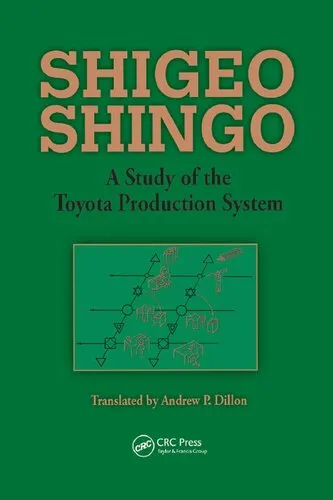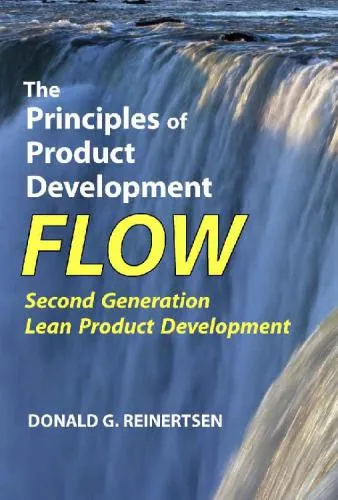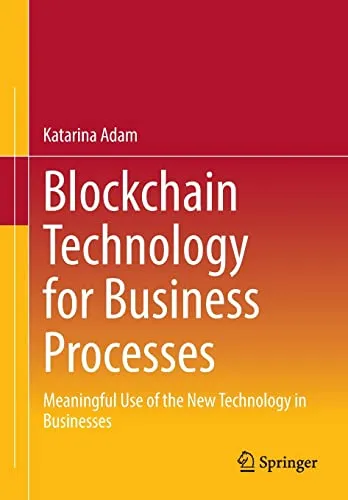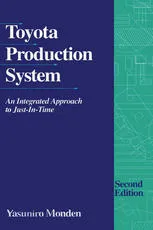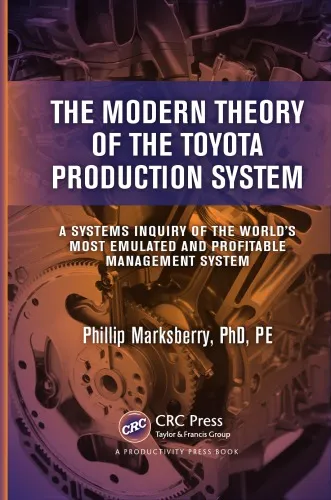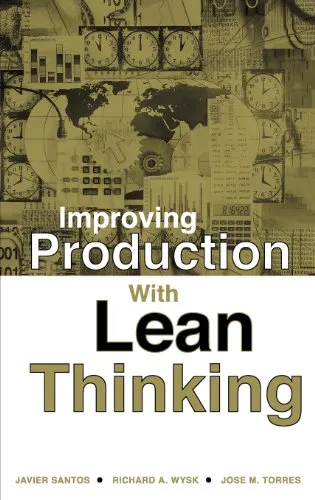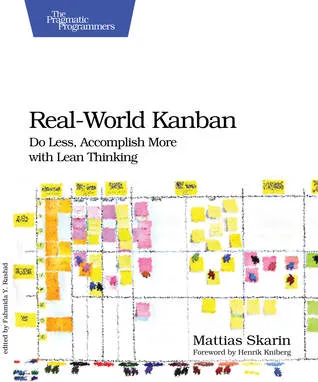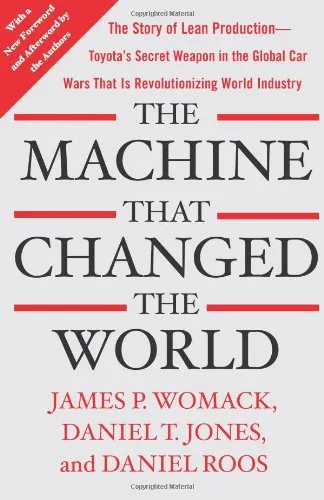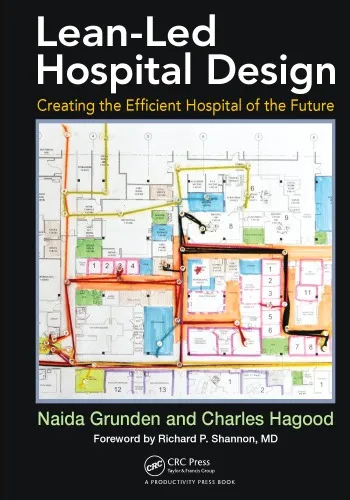A Study of the Toyota Production System: From an Industrial Engineering Viewpoint (Produce What Is Needed, When It's Needed)
4.5
Reviews from our users

You Can Ask your questions from this book's AI after Login
Each download or ask from book AI costs 2 points. To earn more free points, please visit the Points Guide Page and complete some valuable actions.Related Refrences:
Welcome to the profound exploration of the Toyota Production System through the lens of industrial engineering. Our book, "A Study of the Toyota Production System: From an Industrial Engineering Viewpoint (Produce What Is Needed, When It's Needed)," delves deep into the revolutionary manufacturing philosophies that have propelled Toyota to the forefront of the automotive industry. By integrating practical insights and foundational strategies, this book serves as an essential resource for professionals seeking to enhance efficiency and innovation in manufacturing.
Detailed Summary of the Book
In this comprehensive study, we examine the intricate details of the Toyota Production System (TPS), a methodology that has transformed modern manufacturing. This book presents a rigorous analysis of the principles and applications that make TPS a model for other industries worldwide. The work is rooted in understanding how Toyota has consistently delivered high-quality products while optimizing resource utilization and minimizing waste. We explore the evolution of TPS, covering the development phases led by pioneers such as Taiichi Ohno and Eiji Toyoda, showcasing how they meticulously crafted a process that intertwines human intelligence and mechanical efficiency.
Central to our exploration is the concept of "Just-in-Time" production, a cornerstone of the TPS model. This approach emphasizes producing only what is needed, when it is needed, drastically reducing inventory costs and enhancing response agility to market demands. Additional focus is placed on lean manufacturing principles and the elimination of waste (known as "muda"), both critical components for sustaining competitive advantage in production.
Key Takeaways
- Understanding the foundational elements of the Toyota Production System and its global influence.
- Detailed insights into the Just-in-Time philosophy and its impact on modern manufacturing processes.
- Techniques for integrating lean manufacturing principles into various industrial sectors.
- Practical strategies for eliminating waste and optimizing efficiency through systematic engineering approaches.
Famous Quotes from the Book
"The best results are achieved when people are learning and growing while applying their skills in the most effective ways."
"Efficiency in production involves every detail—action or nonaction—planned or random, that affects product flow and cost."
Why This Book Matters
Our study of the Toyota Production System is vital for those who seek to understand both the theoretical and practical aspects of successful manufacturing practices. As global markets become increasingly competitive, industries cannot afford inefficiencies. This book serves not only as a historical documentation of one of the most successful production methodologies but also as a playbook for implementing these strategies in diverse industries. By emphasizing continuous improvement and adaptability, the principles found in this book help businesses of all types address complex challenges that arise from dynamic business environments.
The insights provided are crucial for business leaders, engineers, managers, and anyone interested in process optimization, operational excellence, and strategic implementation of advanced manufacturing systems. The practicality of the strategies discussed transcends automobile manufacturing, offering universal applications for industries ranging from electronics to consumer goods.
Free Direct Download
You Can Download this book after Login
Accessing books through legal platforms and public libraries not only supports the rights of authors and publishers but also contributes to the sustainability of reading culture. Before downloading, please take a moment to consider these options.
Find this book on other platforms:
WorldCat helps you find books in libraries worldwide.
See ratings, reviews, and discussions on Goodreads.
Find and buy rare or used books on AbeBooks.
1367
بازدید4.5
امتیاز0
نظر98%
رضایتReviews:
4.5
Based on 0 users review
Questions & Answers
Ask questions about this book or help others by answering
No questions yet. Be the first to ask!
